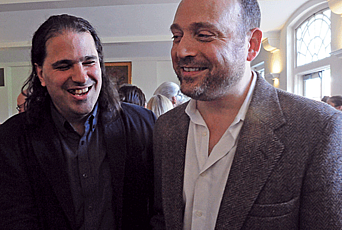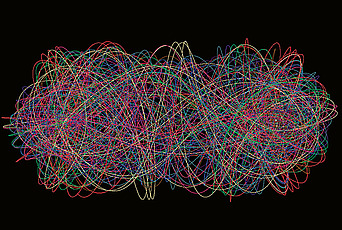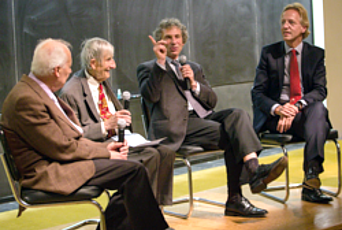Talking Points: Ian McEwan and Nima Arkani-Hamed
On November 12, at the opening of the Large Hadron Collider exhibition at the Science Museum in London, Nima Arkani-Hamed, Professor in the School of Natural Sciences, met with novelist Ian McEwan for a conversation aimed at finding the common ground between art and science. The following is an edited excerpt; a video of the full interview is available here.
Ian McEwan: Here is a major difference. I’m well aware in science how important it is to be first. Being second with the structure of DNA would consign you to the dustbin of history, whereas every novelist knows that you’re in a self-sustaining world in which whatever you say is so. It’s for others to accept it or reject it. I often pity those scientists who are in a race just to get on the public record for the first time—days, weeks before someone else—and your life can be transformed. Crick and Watson are a perfect case of this. If [Linus] Pauling had got there before them we wouldn’t have heard of Jim Watson. It’s a tougher world.
Nima Arkani-Hamed: One thing about originality at an even baser level is how easy it is to be original, how much innate, intrinsic talent is needed to be able to do something. And here we [scientists] have an advantage—there’s this thing out there that we’re not inventing but discovering. And because of that all you have to do is get somewhere in the neighborhood of the truth. You don’t have to get particularly close to it, you just have to know that it’s there and then you have to not fight it and just let it drag you in toward itself. If you’re very talented, you might hack your way there more quickly. If you’re less talented, you might have to pinball around, and it takes a little longer.


